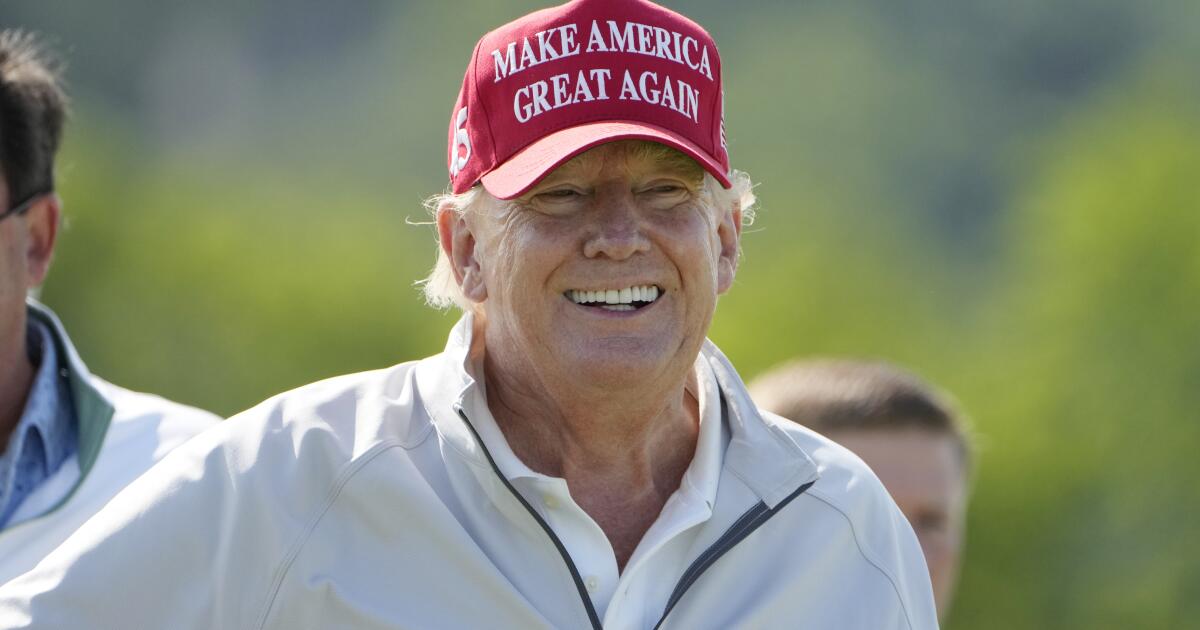Supreme Court justices on Wednesday sounded ready to rule that a T-shirt with the phrase “Trump Too Small” cannot be trademarked by a California attorney seeking the exclusive right to sell clothing with the slogan.
Trump is not a party to the case of Vidal vs. Elster, but in the past he objected when businesses and others tried to make use of his name.
In arguments Wednesday, Biden administration attorneys urged the court to deny the trademark for the disputed shirts, but their position was not related to the message, which is critical of the former president.
Since 1946, Congress has barred the registering of a trademark that includes a name or image that identifies “a particular living individual,” administration attorneys said.
When they adopted this provision, lawmakers were particularly interested in preventing the use of a president’s or former president’s name as a means to advertise products. They cited examples such as “George Washington” coffee or “Abe Lincoln” gin.
Deputy Solicitor Gen. Malcolm Stewart described a trademark as “a condition on a federal benefit, not a restriction on the freedom of speech.”
He said California attorney and T-shirt entrepreneur Steve Elster has a right to sell his “Trump Too Small” T-shirts, but not “an exclusive right” to the phrase.
Elster said he was amused in 2016 when Republican presidential candidates exchanged comments about the size of Trump’s hands during a debate. Florida Sen. Marco Rubio, whom Trump had mocked as “Little Marco,” asked Trump to hold up his hands, which he did.
After Trump won the election, Elster decided to sell T-shirts with phrase “Trump Too Small,” criticizing Trump’s accomplishments on civil rights, the environment and other issues.
He was free to do so, but the Patent and Copyright Office denied his request to trademark the phrase for his exclusive use.
When he appealed the denial, a federal appeals court ruled his trademark phrase was political commentary protected by the 1st Amendment.
Solicitor Gen. Elizabeth Prelogar appealed on behalf of the government and urged the Supreme Court to reverse that decision.
In arguments Wednesday, Justice Clarence Thomas said he did not see how the denial of a trademark restricted free speech, since Elster was free to sell his T-shirts and to use the phrase.
Chief Justice John G. Roberts Jr. said that upholding Elster’s trademark could restrict free speech because it would prevent others from using the disputed phrase.
Justice Brett M. Kavanaugh said it was reasonable for Congress to decide not to help others to profit from the use of a person’s name.

